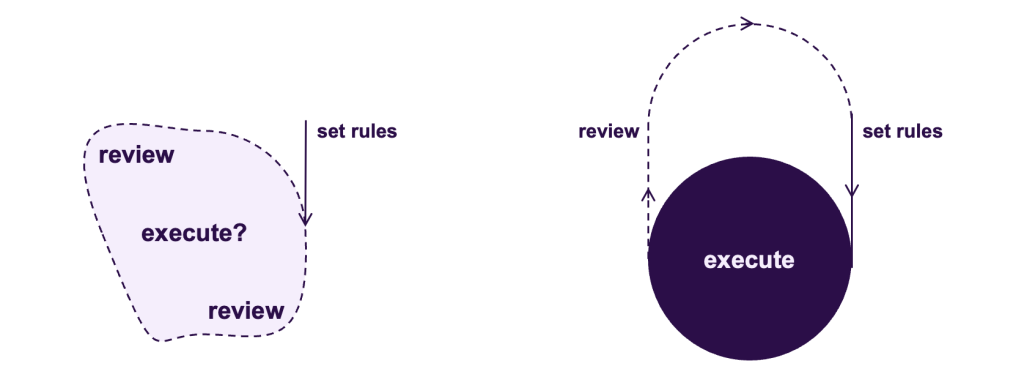Hierarchy is not what it used to be. Discipline is out of favour, displaced by more fluid concepts of engagement. There are good reasons for this shift. The dangers of blind obedience, or demands for it, in publicly funded work are well-known. But, especially in high-risk settings, unity and consistency can be great strengths. It is easy to sacrifice coordinated action for endless collaboration if we think of order and discipline only as forms of bondage.
Many publicly funded organisations are increasingly framed around individual rights, choice, and agency, and the idea of submitting to rules can feel regressive. It is easy to critique deference as a weakness, and to dismiss command structures as a form of tyranny.
Higher levels of education have trained people to question, to contextualise, to see complexity where the lines may once have seemed clearer. Order, structure, and consistency, once welcome, now invite scrutiny and even resistance.
In many cases, this scepticism yielded real benefits at low cost. In most offices and classrooms, the stakes are low and the margins for error wide. It has been easy to reject discipline as a relic, or a symbol of repression, and to conflate order with control.
But not every setting is low risk, and not all situations allow for debate. Under pressure—a burning building, a crash site, a crisis room—we need to coordinate, without the luxury of negotiating everything and persuading everyone.
Some mavericks think bending the rules is a strength. But breaking rules can be a liability when the costs fall on others, or the public, not just the rugged individual.
Too much independence can slow decisions, splinter teams, and turn healthy scepticism into dangerous delay. Variation is great for innovation, but at the cost of cohesion. Executives who argue behind closed doors present a united front when those doors open. Paramedics on their first shift together rely on shared protocols, not personal preferences, to save lives.

Discipline is not mindless obedience, and sometimes we need hard rules to manage coordination and trust when the stakes are highest. We need to understand, and explain up front, why and when the principle of compliance is more important than the justification for a specific rule. Agree up front what is non-negotiable, with no exceptions, and no delays.
Reinforce consistency of execution to maximise clarity and unity. Drill routines until they are second nature in the heat of the moment, and apply swift consequences for all breaches.
Invite and reward challenges to the status quo, but only after the heat of battle. Rigorously and regularly review what works well and what could be improved. Encourage questions, at the right time and place.
Discipline need not suppress questions or thought, just channel them. Mavericks who lock in with teams in the moment can be champions for improving systems, rather than bypassing them, when it is time to reflect.
When rules are clear, understood, and undisputed, teams can act with speed and confidence. Shared expectations cut through the noise of a crisis, forging strangers into a unit that can react and adapt quickly, without falling apart or losing focus.
Discipline makes space for trust, and fidelity of execution. Debate behind closed doors, review and set rules when it’s quiet at the front, and show up together when it matters most. Not everything that holds us together needs to hold us back, and we should not mistake discipline for bondage.
